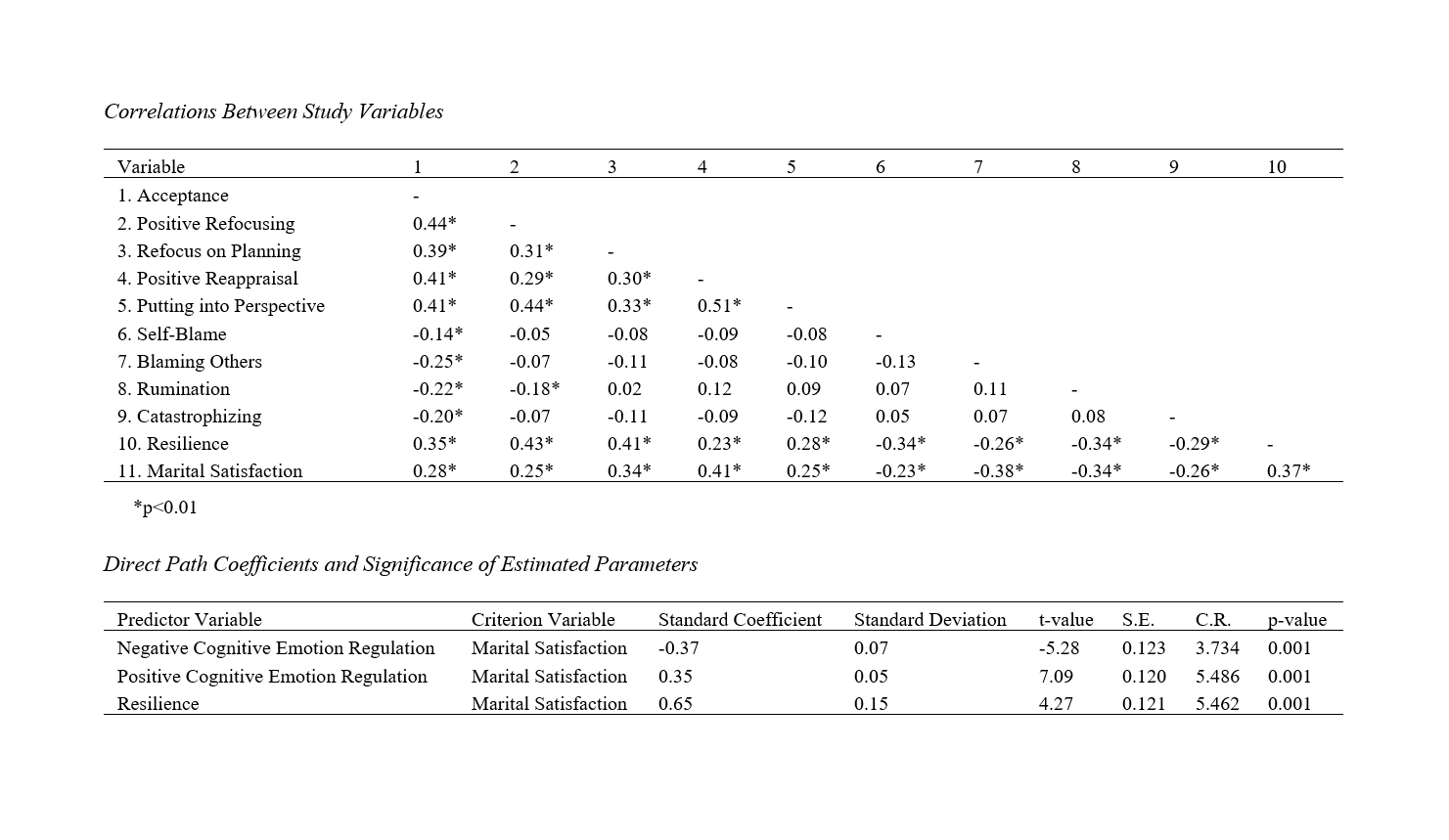Predicting Marital Satisfaction Based on Cognitive Emotion Regulation Strategies with the Mediating Role of Resilience in Married Women
Keywords:
Resilience, Marital Conflict, Cognitive Emotion Regulation Strategies, Marital SatisfactionAbstract
Objective: The objective of the present study was to predict marital satisfaction in married women based on cognitive emotion regulation strategies with the mediating role of resilience.
Methods: This descriptive-correlational study employed a structural equation modeling approach. The statistical population included all married women experiencing marital conflict who visited clinics and counseling centers in District 5 of Tehran in 2021. From this population, 250 women were selected using a non-random, convenience sampling method. Data were collected using the Sanaei Marital Conflict Questionnaire (1998), the ENRICH Marital Satisfaction Scale (1981), the Garnefski and Kraaij Cognitive Emotion Regulation Questionnaire (2006), and the Connor-Davidson Resilience Scale (2003). The data were analyzed using correlation tests and structural equation modeling.
Findings: The results indicated a positive and significant relationship between cognitive emotion regulation strategies and resilience with marital satisfaction (P < 0.01). The findings supported the mediating role of resilience in the relationship between cognitive emotion regulation strategies and marital satisfaction in married women experiencing marital conflict (P < 0.01). Additionally, the modified model showed a good fit.
Conclusion: The results demonstrated that resilience and cognitive emotion regulation strategies play an important role in marital satisfaction. It is essential to consider these critical variables in counseling programs for women experiencing marital conflict.
Downloads

Downloads
Additional Files
Published
Issue
Section
License

This work is licensed under a Creative Commons Attribution-NonCommercial 4.0 International License.




















